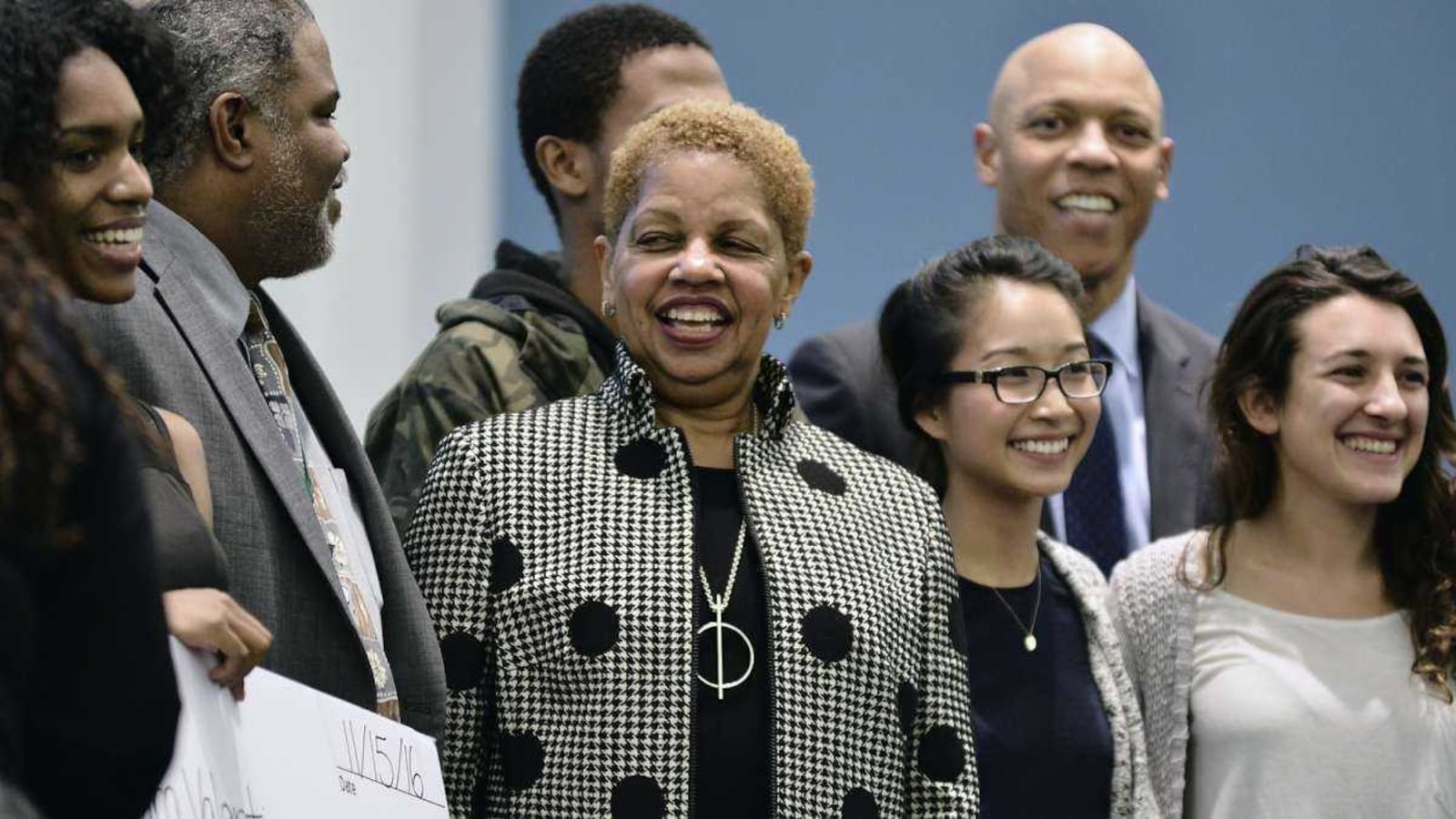This article was originally published in The Notebook. In August 2020, The Notebook became Chalkbeat Philadelphia.
School Reform Commission Chair Joyce Wilkerson sent a letter to House Speaker Mike Turzai defending the District’s charter authorizing process and inviting him to come to "meet with us and learn about the excellent work" for himself. Earlier this week Turzai wrote to the SRC blasting the District’s Office of Charter Schools for "overreach" in putting what he said were onerous conditions in charter school renewal agreements and warning that the action could jeopardize some of the District’s state funding. He especially objected to enrollment caps and a provision that would limit the charters’ ability to put up its state funding as collateral for capital projects. Twenty-six charters are up for renewal this year. On Monday, the SRC renewed eight charters, began one nonrenewal process and tabled another recommendation for nonrenewal. Thirteen other charters with completed reviews have yet to sign renewal agreements, and three reviews aren’t yet complete. At the meeting, individual charters had complaints about other items, including what some said were unreasonable and unfair academic standards. Turzai policy aide Neal Lesher said that the Speaker has met "several times" with SRC members and District officials. If Wilkerson meant to invite him to another meeting, "if they want to call the office to set up a time to come in and meet with him, we would be happy to accommodate the request." Wilkerson wrote in a letter dated May 3 that the Charter Schools Office has recommended renewal for 21 of the 23 schools for which reviews have been completed. "This amounts to the renewal of over 15,000 charter school seats for Philadelphia students," adding that the renewals include approval for 797 new seats. But she also cited "compliance concerns" for charters, including board meetings that violate the Sunshine Act, lack of state-mandated services for English Language Learners, failure to complete criminal background checks for all employees, and schools that don’t comply with state requirements for a "fair and accessible" admissions lottery. "For each of these schools, the Charter Schools Office recommended conditions to address these deficiencyies to bring the school into compliance with state law and regulations," Wilkerson wrote. "This is a critical part of our work ensuring that every Philadelphia charter school is offering quality seats to our students." She said the charter office is working with the schools that have complaints to "come to agreement on final language." Turzai said in his letter, dated May 1, that the District "is trying to drastically overstep both the spirit and letter of existing charter school law" and is flouting the wishes of parents who are choosing these schools. "It is clear that charter school opportunities mean very much to a large segment of the Philadelphia community…the constant fighting is costing the city schools valuable resources which could be invested in the schools instead of lawyers and bureaucrats." The "constant fighting" comes when the state legislature is considering revisions of the state’s 20-year-old charter law. The house passed a bill last week, HB 97, that makes substantial revisions in the charter authorizing process that Philadelphia officials said would weaken their ability to assure quality. Philadelphia has more than half the charter school students in the state and about two-thirds of its 98,000 charter students.


